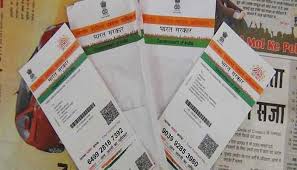
The government on Tuesday proposed making Aadhaar, the unique number issued by the Unique Identification Authority of India, mandatory for filing of income-tax returns as well as for obtaining and retaining the permanent account number (PAN). It also proposed making cash transactions above Rs2 lakh illegal, reducing the limit from the earlier proposed one of Rs3 lakh, as per the official amendments to the finance bill 2017 moved by the government.
Once passed by Parliament, these amendments will further tighten the noose around tax evaders and aid the government’s drive against black money.
According to the amendments, from 1 July, every taxpayer will have to quote Aadhaar while applying for a PAN and while filing income-tax returns. Further, existing PAN holders will have to disclose their Aadhaar numbers to the government by a date that will be specified later. In case of failure to intimate the Aadhaar number, the PAN allotted to the person shall be deemed invalid.
The government’s move to link Aadhaar will help in weeding out tax evaders who have multiple PANs. Though the income-tax department has been seeding PAN with Aadhaar for the last few years, the pace of the linkage has not been very good.
Taxpayers who do not have an Aadhaar number are required to quote their Aadhaar enrolment number, the amendments said.
The finance bill is expected to receive the Lok Sabha’s nod on Wednesday.
The government’s proposal to cap cash transactions at Rs 2 lakh will create a paper trail for all high-value transactions and hit purchases of real estate, jewellery and luxury goods.
While presenting the Union budget, finance minister Arun Jaitley had on 1 February proposed that the legal limit for cash transactions would be Rs 3 lakh, in line with the recommendations of the Supreme Court-constituted Special Investigation Team (SIT) on black money.
Revenue secretary Hasmukh Adhia tweeted on Tuesday that the penalty for a violation would be a fine equivalent to the value of the transaction.





